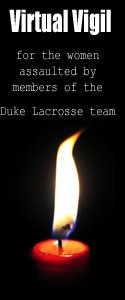Blow It Up: Sites, Sights, Sighs
Homonationalism in Queer Times
Jackie Salloum's films: Who's the terrorist? and Planet of the Arabs
Free THe P:
Listen to Invincible (queer, anti-zionist jewish activist): "No Comprise"
Listen to Suheir Hammad's "In American"
Iron Sheik's "Affirmative Action, Affirmative Action"
Nancy Ajram
Timz's Iraq, produced by Ron Najor
Dam's BORN HERE
Haifa
Make/Shift
An Interview with Nadine Labaki on her film Caramel
In this interview Love and War are oppositional subject. The Filmmaker wants to 'humanize' the Lebanese people by demonstrating their ability to laugh, love, and mostly, to be exhibit affinities with "Western" (French culture in particular) heteronormative values.
CARAMEL// official website
"OPENS FEBRUARY 1 IN SELECT CITIES. In Beirut, five women meet regularly in a beauty salon, a colorful and sensual microcosm of the city where several generations come into contact, talk and confide in each other. Layale loves Rabih, but Rabih is married. Nisrine is Muslim and her forthcoming marriage poses a problem; she is no longer a virgin. Rima is tormented? by her attraction to women and especially to a lovely client with long hair. Jamale is refusing to grow old. Rose has sacrificed her life to take care of her elderly sister. In the salon, their intimate and liberated conversations revolve around men, sex and motherhood, between haircuts and sugar waxing with caramel."
OPENED IN LOS ANGELES: FEBRUARY 1, 2008.
Landmark Theatre on Pico
Rima is not "tormented" in the film. Rima is left out of the various pix and Labaki's film downplays the Arab femme..... interesting in the context of Kara Keeling's book The Witch's Flight.
also check out PERSEPOLIS based on the graphic memoirs by Marjane Satrapi





.jpg)








 -->
-->